|
There are a few guarantees in this life. Some say it is death and taxes. Purdue basketball fans, such as myself, will add Matt Painter. But there is another guarantee in life, and it is one that is as uncomfortable and taboo as death: suffering. Death, taxes, Matt Painter, and suffering. The suffering we think of most often is typically connected to death - the suffering of a cancer patient or of someone who has been in a tragic accident. This suffering is very real, but also extraordinary. I do not mean that this suffering is somehow alien to the human experience; it is deeply real and personal to those who experience it and their loved ones, but that it is truly extra (outside of the) ordinary. Ordinary suffering comes in many forms: the lack of sleep felt by new parents, the inability to pay one’s bills after being laid off, the end of a relationship that seemed to be perfect, the inexplicable change in direction from the Lord after following a path that seemed ordained by that same God. These, and countless other examples, are the suffering of the day-to-day life of the human person. There is a human tendency to compare suffering. “Well, their suffering seems so much worse than mine, so mine must be insignificant, and my response to my suffering is somehow overblown or distorted.” But this reaction is what is distorted. Suffering is, as I said at the start of this blog, guaranteed in life. That is a pretty undesirable guarantee. All we have to do is look out into the world, or just rewatch the movie of our own lives to find some sort of suffering, whether great or “small.” The question is not if we will suffer, but how we handle suffering and what it does in our lives. I am personally unable to understand how one can endure suffering without some sort of conception of God, and more specifically a personal relationship with the God who became man and who suffered and died for us. It is just that relationship that has gotten me through the traumatic death of my father just over five years ago and the daily suffering that is thrown my way. Suffering can easily make a strong person crumble, so the first thing we should do is realize that we are not strong, but weak. We are the sick that Jesus professes need a physician in the Gospel of Matthew. The physician is the only one who can prescribe the medication of grace needed to help us through our suffering. The grace is dispensed to us not through pills or syringes but through prayer. It is only through constant prayer, which is the reception of the transformative love of God, that suffering has meaning and can be endured. Sr. Ruth Burrows says in her book Essence of Prayer that God’s touch in our lives, “however lightly, means I suffer,” (Burrow, 38). Prayer opens us up to the fact that we are nothing, we are weak, we are in great need and, “it is then that I really experience that I need Jesus and everything depends on my living this out, letting go of the controls, handing them over to him and accepting to have no holiness, no achievement of my own, to be before God as nothing,” (ibid, 39). This is the bottom line of suffering. It is not gratuitous, meaningless, or completely nonsensical; it is the process of being stripped of all of our egotistical and self-seeking tendencies that leave us closed off to God’s healing touch. Patient endurance of the suffering we experience is the way that we are prepared for life with God. How do we know this? Because Jesus Christ took on human form and lived in perfect obedience as the Apostle to the Eternal Father. Jesus’ life found its highest fulfillment in obedient suffering and sacrifice in the Garden of Gethsemane, at the Pillar, on the road to Calvary, and on the Cross. In his suffering, Christ took on all of ours - from the suffering of a broken heart to the suffering of death - and brought them meaning. In fact, it was the signs of his suffering that he kept after his resurrection as trophies of his victory over death. It was these same signs of suffering, Jesus’ wounds, that proved the resurrection to Thomas. Our wounds, our suffering, participate in the suffering and wounds of Christ. Thomas experienced the Risen Christ in His wounds, and we too experience Him in our wounds. Suffering is a guarantee, but it does not end as pain- it leads us to victory, to intimacy with God, and brings us to God as empty vessels for him to fill with his glory.
0 Comments
In college I was lucky enough to spend a semester in Cork, Ireland. In my Irish folklore class, my professor, a charming little Irish woman, introduced us to ‘tír na nÓg.’ Fundamental to Irish folklore, she described tír na nÓg as a liminal space, the betwixt and between. It is the thin veil that separates the supernatural world of the fairies from our natural, human one. In these places, there was much less of a divide between the supernatural and natural worlds. While Ireland is well known for its Celtic spirituality and folklore, it also has a strong Catholic tradition. As Catholicism took root in the country, the ancient traditions and rituals were maintained and incorporated into the Christian spirituality. In her book, Braving the Thin Places, Irish Catholic author Julianne Stanz draws out this connection. Just as tír na nÓg is the place where the mystical is believed to be closer at hand, we also have these “threshold places” in our own spiritual lives. Instead of thinking about the supernatural in terms of fairies, we can consider the way that God descends into our world and the places where we have a deeper sense of His mystical presence and action. Our personal thin places are those where “God is felt and near” (Stanz, 2021, p. xvii). But as most people who have desired to develop a deeper relationship with God will know, it can take time to become attuned to this nearness and let Him break through. For some, this breaking through can be spurred by beauty. In seeing a striking rainbow over the Irish countryside or beholding a newborn child, we can have an overwhelming sense of God’s power and work in our midst. In other cases, this breaking through may be the result of a personal difficulty or interior struggle. As Christ himself revealed, “For human beings this is impossible, but for God all things are possible” (Matthew 19:26). It is when our own powers fail, whether in comprehending the immensity of God’s goodness or in overcoming the difficulties we encounter, that we approach the threshold where God, with His strength and love, awaits us. Throughout the Old Testament, God revealed his nearness to his people: “What other nation is so great as to have their gods near them the way the Lord our God is near us whenever we pray to him?” (Deuteronomy 4:7) God approached the threshold of our lives and invited us to draw near to Him in return. In the Incarnation of Jesus, this nearness is made even more real to us. If tír na nÓg is the veil that separates the supernatural from the natural, Jesus fully pulls back this curtain. By descending into our world, He made space for the divine within the human. We call this grace; divine life within us. Grace works in our threshold places and enables us to discern God’s work and act upon His promptings. In concluding her book, Stanz speaks of the mysticism we must have, “an abandonment to the adventure of living with ‘holy worldliness’ as we try to experience in the thin places the wild things of God” (p. 169). Far from recklessness, this abandonment is a surrender to God and a trust in the ways He is working in our lives. It is “the free response of the human person to the initiative of God who reveals himself” (Catechism of the Catholic Church § 166). If we know God is near and for us, how can we not cross this threshold and rely on Him? The beloved Irish saint, St. Patrick, in his famous lorica or breastplate prayer models this reliance on God and belief in God’s nearness and power to cross the threshold of his humanity: I arise today Through God's strength to pilot me; God's might to uphold me, God's wisdom to guide me, God's eye to look before me, God's ear to hear me, God's word to speak for me, God's hand to guard me, God's way to lie before me, God's shield to protect me, God's hosts to save me. May we all have the grace to enter into our threshold places and be open to the powerful work of God in each of our lives! Stanz, J. (2021). Braving the Thin Places. Loyola Press. **Photo from Erin Donn.** What does it mean to be bicultural? It means that a person can represent and identify with more than one country. I have been given the blessing of representing three cultures at the same time: I am Mexican, Salvadorian, and American. Representing these three cultures has given me the opportunity to see God’s beautiful creation from different perspectives and enriched my understanding of the Church. As I have grown, I’ve encountered Christ who has revealed my vocation and his love for me through this tricultural blessing. As a child, all I knew about my faith was either through my parents or Sunday school at my local parish. I was taught Bible stories, saint stories, and prayers in Spanish. I was happy to be in that bubble away from the math problems at school, my English cartoons, and anything related to the American culture. These were the only times I could actually learn about who I was as a Catholic Latina. My Mexican and Salvadorian traditions were intertwined with my faith. Being Catholic and part of the Latino community meant we professed our love for God through our actions. Our focus wasn’t reading or studying the faith because that was never in our reach to dive into. Instead, the community learned that their actions were their way to live the mission of Christ in their day to day lives. This was something I learned very early on. I also learned how important it was to my parents for me to learn about our faith and its traditions. One of my favorite memories will always be the celebration of the Feast of Our Lady of Guadalupe. It was always full of color, and the church was filled with the smell of red roses. What I remember the most is staying up past my bedtime, but also being able to see the faith and the love many people had towards our Blessed Mother. After many years of being in my little Spanish bubble, my parents decided to send me to a private Catholic school. This is where I realized there was way more to my faith than I was taught at Sunday school. I realized that I had to burst my bubble to actually learn more about my faith in English. It was not easy to understand the different prayers in English or to take religion classes in English. My experience in private Catholic school also helped me realize that there was more to my faith than just my Spanish world. I decided to become the student that was always asking different theological questions during religion class. I became obsessed with learning about the different doctrines and about the significance of the church’s architecture. All of this opened a new door to my spiritual life. I could experience Christ through Church teaching as well as serve him through my actions. I became aware that there was no need to separate all three cultures for different aspects of my life! Somehow, all my cultures were blending together in ways I would have never imagined. All of them could work together to strengthen my faith. Over many years, I have learned that being bilingual and tricultural means I can live out my faith in unique ways. I can discover Christ not only through the combination of these cultures, but also within each individual one. Now, I have no need for different bubbles to live out my faith because God created me to praise him and uniquely evangelize about his love. Each culture has helped me deepen my relationship with Christ. As a lector in the Spanish Mass, I am able to read and analyze the Word of God. Later on, these readings help me have meaningful conversations in my Theology classes at The Catholic University of America. By learning about different resources and reading in class, I have also learned more about how I can help my Latino community. Now as a young adult, I have become more aware that my cultures, traditions, and languages have molded my faith and shaped my way of life as a member of the laity of the Church. For more resources on cultural diversity, please click here. “Death and life are in the power of the tongue, and those who love it will eat its fruit.” Proverbs 18:21. The definition of the word “communication” from Webster’s dictionary is: “to share or impart information.” I look at this word and see a whole lot more. Com = come and commune = to communicate intimately. Communication can be defined as people coming together intimately to share information of all kinds. Coming together or communing is a very personal act, requiring the openness of individuals to both share information as well as receive it. This is where the very act of communicating becomes challenging. We are diverse as individuals and have a multitude of ways of perceiving what is communicated, as well as varying ways of imparting our ideas and information. When we speak to another, we do not just simply use words. We use tone, inflection, and body language. Because of all this, we can relay information in a positive or a negative manner. Keeping this in mind, it is essential to be very intentional and aware of how and what we communicate at all times. Ephesians 4:24 is plain in its instruction: “Do not let any unwholesome talk come out of your mouths, but only what is helpful for building others up according to their needs, that it may benefit those who listen.” As Christians, we want to always strive to build up and encourage with our communication. I’ve found that for communication to be successful, there have to be some ground rules. This requires that we be intentional people of prayer who ask for wisdom and understanding. Praying also helps us to be reverent, respectful, and open. Colossians 4:6 tells us “Let your conversation be always full of grace, seasoned with salt, so that you may know how to answer everyone.” This is a tall order for mere humans, which is precisely why we need God working in and with us. Our words can be blessings or weapons in any of our relationships. God calls us to love Him and our neighbor as ourselves – to serve in humility and love. Our speech has to align with this, the greatest commandment. As Proverbs 12:18 says, “The words of the reckless pierce like swords, but the tongue of the wise brings healing.” What we say and how we deliver it reveals the spiritual battle we are engaged in. Our purpose in speaking should always be for the good of the recipient. There are so many things we wish to impart to others in our daily lives: instructions, encouragement, advice, exhortation, expressions of love, thanks, concern, correction. The list is endless. However, a quote attributed to St. Francis of Assisi sums up communication in a beautiful and profound way: “preach the Gospel always, and if necessary, use words.” What that means is that our goal should be to impart all that Jesus taught us through acts of love and mercy, and when we have exhausted our actions, then use words. I realize it is necessary to speak for many important reasons, but it must always be done in respect of the dignity of the recipient, aware that they are a child of God and always desiring the best for them. Since this is a challenging task, we must seek the help of the Holy Spirit and also holy people who can assist us in learning the best manner of speaking to others in all types of circumstances. It is not something we are just born with the ability to do. It comes with prayerful guidance and lots of practice. James 1:26 reminds us “Those who consider themselves religious and yet do not keep a tight rein on their tongues deceive themselves and their religion is worthless.” Another element of communication is discerning when it is appropriate to speak and when to remain silent. I don’t mean ignoring another or refusing to talk. I mean weighing what you ‘feel’ or ‘want’ to say versus what is ‘right’ and ‘necessary’ to impart. “The heart of the righteous weighs its answers, but the mouth of the wicked gushes evil,” Proverbs 15:28 continues. This requires each of us to spend a good amount of time in quiet prayer each day in order to be in an open disposition to receive wisdom and understanding about what to communicate. From there, we must pray for the grace to ‘commune’ with the recipient of our information in a loving and Godly manner. When we nurture a consistent prayer life with the Lord, we experience peace that guards our minds and hearts. Because of our woundedness and fallen nature, the world and the devil’s designs, we struggle in this area and need the guidance of the Holy Spirit to be communicators that build up, encourage, and love through our words. In our fractured world, when people are attacking each other on all fronts about every issue imaginable, we as Christians need to be conduits of peace when we communicate. Praying for the desire to express love in everything we do will benefit us when we communicate and when we are receiving communication from others. We must grow in self-control and patience so that our communication will be positive, even in the toughest conversations. As Christians working to build the Kingdom of God, we must allow the love of Christ to flow out of us in all our actions and in every word we utter. We can come together with others and share information in many beautiful ways. God gave us voices for this. Let us always be in deep communion with God who loved us into being and calls us to be relational in order to share His love and build His kingdom on earth! Let Psalm 141:3 be our daily prayer: “Set a guard over my mouth Lord, keep watch over the door of my lips.” To read more about charitable communication and evangelization, we invite you to read Choosing to Believe in Another’s Best Intentions or Communicating Like Chrysostom: Growing Your Skills in Speaking for the New Evangelization. I believed the lie since I was small. I was only 10-years-old when my experience carved a wounding message into my heart: I would not be taken care of by anyone but myself. I was on my own. The lie ensnared me as my dad withered away. He was weak, fragile, and powerless, but it hadn’t always been that way. He had once stood like a great tree: strong, a protector who covered me with his mighty branches. By the time he was diagnosed, he had already begun to fade. I once climbed into his arms for safety, but he could no longer bear the weight of my tiny frame. When he passed, I, however unconsciously, decided that the only way to protect myself from the pain of being left alone was to choose independent solitude. “I’ve got it under control” became my most used phrase. If I refused the support and care offered to me, then I would not risk the pain of losing love when it inevitably let me down. Like a black hole, the lie swallowed me up and trapped me, even into adulthood. The birth of my first child was shadowed by the fear that he might be taken from me. Could I dare to love someone so fragile? Though my marriage is a gift of redemption, I still fought the discomfort of allowing another into the most intimate corners of my heart. I was hiding behind a thick wall of I-can-do-it-all-alone. Satan loves this wound. It is easily infected, and I was at constant risk of being overcome. The years I spent believing the lie are the same years I spent being invited to freedom in Christ by people who love me. Because of their care, I knew who He was and that He was good. I was only unsure that He was good to me. However, the years of isolation and masked strength wore me down. I was being crushed by the weight of loneliness, and I needed to be saved. So I surrendered. Carefully, I relaxed into the arms of Emmanuel. When I laid down my defense, I could see beyond the wall I had built. There was my God, and He was fighting an Enemy who cannot overcome Him. He saw me, invited me to lay my hurt at the Cross, and He cleansed me with Truth: I am the daughter of a Father who never leaves and never fails. I fight each day to remain in that Truth, remembering the ways He has fought for me and trusting that He will show up for me again. The wounding message I received is not gone, but I no longer carry it alone. I will not completely understand the role of the wounds I carry while on this side of Heaven, but I understand this: He knew that I would need to seek after Him for healing, and that when I did I would fall in love with the Healer. When I am tempted to turn away from the Lord out of my wrong belief that I stand alone, I am reminded that He designed me to depend upon His grace. As I entrust my fragile heart to God’s care, I receive His good from life’s bad. He offers better protection than the walls around my heart ever could. Romans 8:28 says, “We know that in all things God works for the good of those who love Him, who have been called according to His purpose.” Dear one, I invite you to surrender to Him. Allow him to fight for you. Get to know Him as you do. Be patient-- with God, and with yourself as He shows you how to accept love and care. The Father can and will produce goodness out of what you give Him. There is freedom in the healing. If you enjoyed this post, we invite you to read Participating in Our Own Redemption and Seeking Healing and Living in Right Relationship.
Recently, my husband and I attended a virtual Catholic Marriage Summit called, “Joyful Ever After.” Several of the speakers mentioned the importance of cultivating the virtue of believing in your spouse’s best intentions rather than assuming ill will when a perceived grievance is committed. I thought back to a time when my husband and I were dating long-distance. He texted me that he would be arriving late to see me, which was very unlike him. I was a bit sassy in my response. What I didn’t realize at the time was that he was late because he ran into traffic while buying me a surprise bouquet of flowers. A podcast I listen to addressed this same predicament when we interpret our children’s actions before we know their true intentions. The mom on the podcast shared how terribly she felt after becoming upset with one of her children for making a mess of crafting supplies only to find out her child brought out the materials to make her a love note. Encounters like these provide us with opportunities to choose love. Making up stories in our minds that may not be—and most of the time are not—true does more harm to our relationships than good. Assuming good intentions from our spouses, family, friends and co-workers allows us to foster and strengthen relationships. Doubting someone else is a way of protecting ourselves. God is the one who gives us courage to trust others and give them the benefit of the doubt. Being less defensive makes others more receptive. Opening ourselves up to another allows us to share the hope and joy of the Gospel. We become more likeable, less distracted by imagined problems, focused on the actual issue, and are overall happier. After all, God gives us a second, third, fourth and ultimately infinite chances in response to our shortcomings. As James 2:13 says, “For the judgment is merciless to one who has not shown mercy; mercy triumphs over judgment.” Training our minds to think of others and the best intentions they have can both help us and improve our relationships. In many occasions, the person we are interacting with may be reacting from a previous interaction that overflows into our relationship with them. By keeping an open mind without judgement, we allow the Holy Spirit to enter our hearts so that we may reach out to the other with empathy and love. This serves as a reminder to us of our own humanity and imperfection. Believing in another person’s best intentions is an act of faith. To foster this line of thinking in my own marriage, every day I try to share something I’m thankful for about my husband. I try to think about this during prayer as well to help develop gratitude. When I don’t understand something that my husband is doing or has done, I try (very hard!) to ask open-minded questions in order to open dialogue instead of shutting the conversation down or arguing. Some other ways we can seek to see the best intentions in others are: asking for clarification, listening to what’s being said rather than waiting to share our own thoughts, and refraining from editorial comments that could aggravate the situation. During these unusual times, we could all benefit from more compassion and grace. Let us open our hearts and minds to seeing the best in others. For more resources on Marriage and Family, please click here. For more resources to accompany you through this time of COVID-19, please click here. What image comes to mind when you hear the word conversion? To many, the words of those who encountered Jesus in his earthly ministry may come to mind. Conversion may sound like the cry of the Samaritan woman in John’s Gospel: “Come and see a man who told me everything I have done. Could he possibly be the Messiah?” (John 4:29). Perhaps Caravaggio’s The Conversion on the Way to Damascus rises to the surface, an expression of a dramatic scene illustrated with a few artistic liberties. Still, we may associate conversion with a story like St. Augustine: a turning from a former life of debauchery or sin to a life lived in pursuit of God. Because of the art that is important to our faith, cultures, and families, we may assume conversion to be a dramatic, “lightning-bolt” moment: brief, intense, supernatural, and immediately transformative. While our tradition does speak of the reality of dramatic conversions, conversion itself is often more gradual and organic. For those of us whose lives have not yet become hagiography, what does conversion look like? More particularly, what does conversion look like for us in this particular moment, in our current context of history and life? First of all, what is conversion? Conversion, according to the Catechism of the Catholic Church, is “a radical reorientation of our whole life, a return, a conversion to God with all our heart, an end of sin, a turning away from evil, with repugnance toward the evil actions we have committed. At the same time it entails the desire and resolution to change one's life, with hope in God's mercy and trust in the help of his grace” (CCC, #1431). It is “first of all a work of the grace of God who makes our hearts return to him,” and is not “aim[ed] first at outward works, ‘sackcloth and ashes,’ fasting and mortification, but at the conversion of the heart, interior conversion” (CCC #1432 and #1430). In other words, conversion is a movement away from sin, a re-ordering of priorities with Christ re-categorized as the center of our lives. It is something that occurs through supernatural grace and the initiative of the Holy Spirit, first changing our hearts and minds, but through our cooperation, manifests itself in everyday actions or “visible signs” (CCC #1430). The process of conversion, for most of us, is not instantaneous; rather, it usually a slow, gradual process that involves daily recommitment and practice. In a 2017 audience, Pope Francis reflected on the gradualness of conversion this way: “Avoiding evil and learning to do good: this is the rule of conversion. Because being converted doesn’t come from a fairy who converts us with a magic wand: No! It’s a journey. It’s a journey of avoiding and of learning.” As Pope Francis highlights, conversion can be as simple as learning something new. It involves openness to re-orienting our priorities, changing our opinions, reconsidering our worldview, and engaging with the truth. However, the gradual process of conversion doesn’t start and end with us; it is always oriented towards the building up of humanity and being brought more deeply into right relationship with God and one another. Conversion always has a social and relational impact. As the Catechism of the Catholic Church notes, “Conversion is accomplished in daily life by gestures of reconciliation, concern for the poor, the exercise and defense of justice and right, by the admission of faults to one's brethren, fraternal correction, revision of life, examination of conscience, spiritual direction, acceptance of suffering, endurance of persecution for the sake of righteousness” (#1435). Our actions towards our neighbors, God, and the world around us is where our conversion is realized and bears “fruit that will last” (John 15:16). Conversion has both vertical and horizontal dimensions to it; it calls us to recognize ourselves as Beloved children of God, and, at the same time, recognize this Belovedness in our neighbors more clearly as a result of the transforming love of God. We are called to learn more, think more deeply, and consider more thoroughly, especially when the common good of our neighbor is at stake: “It follows that Christian conversion demands reviewing especially those areas and aspects of life ‘related to the social order and the pursuit of the common good.’” (Evangelii Gaudium, 182). When we say that the Christian life is one of on-going conversion, we simply mean this: we are called to learn of our and our neighbors’ Belovedness over and over again and re-commit to it each day. This learning is not merely intellectual, but is also a deep education and formation of the heart and soul that spills over into our concrete lives. In our period of history and social context, conversion may be less dramatic and more gradual for most of us than some of the saints and figures of our faith. However, that does not mean that it is any less exciting! Our personal process of conversion can start as the size of a mustard seed, and grow into a deeply authentic faith that changes the world: “An authentic faith – which is never comfortable or completely personal – always involves a deep desire to change the world, to transmit values, to leave this earth somehow better that we found it” (Evangelii Gaudium, 183). What is going on in our world and in the lives of our neighbors that is calling us to conversion? What new things or viewpoints are we being called to learn or unlearn to realize our Belovedness and the Belovedness of our neighbor? How can we be more open to living a life of ongoing conversion?
“The beginning of all effort is the recognition of what is.” -Romano Guardini, Learning the Virtues That Lead You to God, 1963 Professional athletes do many appearances while playing. We get paid to show up at fundraisers, youth camps, watch parties, and promotional events. Something that is practically a guarantee when attending these appearances is one or more sets of parents coming up to tell us about their child who plays soccer. Often these conversations are quite enjoyable, but almost inevitably, there are a few who want to talk about how their son or daughter was short-changed in their youth soccer experience. There is a lot that these parents say to us, but the consistent element is: my child didn’t succeed because of some external factor. This may very well be the case for some of them. It is equally true, however, that it is certainly not the case for all of them. Much of the time the boy or girl just wasn’t good enough for a particular team, level of competition, or system of play. The point of this post is not to drop the heavy hammer that many kids run out of the athletic ability rope and should give up. No, this post is about the absolute necessity of taking an honest stock of where someone actually is--especially for the spiritual life. Romano Gaurdini says that “the beginning of all effort is the recognition of what is.” The reason for this being that you cannot begin making the effort to improve unless you start with who you already are. Any professional athlete will tell you that it is far more helpful to be taught how to assess and address weaknesses rather than to pretend they don’t exist. In fact, most professional athletes are fairly obsessive about identifying areas in their game where they can improve. If I determine I’d like to be a better shooter with my right foot, for example, then I must begin with the harsh—but necessary—reality that I can barely complete a pass with my right foot. If I never acknowledge my current ability, I’ll constantly run into problems—poor technique, inadequate fundamentals, and so on. I’ll never become a strong shooter without addressing the plain truth of my current ability. This is a skill that requires disciplined practice and will never simply be acquired because I want it to be so. First comes acknowledgment, then a plan for improvement, all for the hope of becoming a good right-footed shooter. This same principle can and should be applied to our spiritual lives. Just as improvement can only take place in athletics by beginning with where an athlete currently is, spiritual advancement can only begin by taking an honest assessment of where one currently is in relation to God. This means you’re far better off admitting that you struggle to pray for 5 minutes and taking that to God than wondering when you’ll receive the Stigmata. It is far more helpful to search deep within yourself and locate and name your pride, selfishness, ego, envy, or lust than only present to God your most pious and holy thoughts. He knows your heart already—He’s just waiting for you to know it as well. One of the most helpful exercises for high-school, collegiate, and professional athletes is to watch film in order to identify strengths and weaknesses. The team watches the most recent game in order to see what needs to be addressed that week in practice. This same concept can migrate into our spiritual lives—we look for points of departure and development in order to draw nearer to God. This practice is not to discourage but to improve. There’s no shame in acknowledging ourselves as we really are. In fact, God can really only begin to heal us once we acknowledge where we are hurt. The Physician cannot tend to our wounds unless we let Him see them. Several days ago, I was talking to my wife about this concept and she brought up how watching film for athletes is similar to the examination of conscience recommended by the Church. Examining one’s conscience on a regular basis is like looking back over the tape to see the strengths and the weaknesses—the graces and the sins—in order to grow. Then, with this self-knowledge, we can go to God, say thank you, and ask for forgiveness, trusting in His merciful love. God looks down on us and loves us as we are, but He also promises that His love is transformative. He looks down and says, “I love you,” while at the same time calling us higher. He wants us to identify what is so that we may cooperate with His grace and begin the beautiful work of improvement. This we call sanctification. May we all be willing to look at ourselves honestly—as we really are—so that we enter into the effort that is the fight of faith (cf Jude 3), trust that God’s grace is sufficient (see 2 Cor 12:9), and become the saints Jesus Christ died for us to be.
I watched her curly little head bounce away from me further down the hiking path and around a bend, out of my sight. I knew her older brothers would slow down so she could keep up with them, taking her under their wings. In the midst of a global pandemic, the woods were a safe space, open and free from the danger that seems to lurk everywhere these days. Nonetheless, my heart rate picked up along with my pace. What if a stranger was on the path? What if she fell and got hurt? I couldn’t see the path ahead, and I was afraid. I hurried along, my anxiety increasing as my steps forward failed to lead me to a view of my children. My thoughts turned dark while the woods around me became bright. Trapped in my own head, I failed to notice the sun breaking through, filtering light through the treetops. Until—there! The sunshine reflecting off of my little girl’s sequin covered sneakers allowed me to catch a glimpse of my babies. “Red light!” I yelled, in our family shorthand for “stop-moving-your-body-immediately.” The birds scattered, startled. My children froze in place as they waited for me to catch up with them. As I knew they would be, the boys were watching closely over their little sister. Taking her by the hand, they coached her through the mud and over the fallen branches. “See, Mama? Pretty!” my curly little girl exclaimed, joyfully depositing semi-crushed wildflowers into my hands. After rubbing her nose against mine, she joined her brothers on a moss-covered log, not registering my fear for even a moment. Exhaling a sigh of relief, I praised God in joy for great big brothers, my safe little girl, and a Father who is Light, illuminating the way. In this season of uncertainty, I find myself living that moment on the hiking path time and again: rushing forward, afraid, unable to see what is ahead. My days are filled with research and passionate conversation about schooling, and what the right choice for our family will be this fall. We deliberate over each barbecue invitation and mourn the loss of birthday celebrations that will never come to life. Parenting in a season where change is the only constant is overwhelming. I’m living that moment on the hiking path again: where I could not see, there was light. Though I was afraid, the Father was before me, protecting my little ones. So now, instead of remaining trapped by my thoughts, I am pursuing His power and protection. I am practicing seeking the light. In his letter to the Colossians, St. Paul reminds us that we can live in joy even in the midst of hardship, and he shows us how: “[We are] strengthened with every power, in accord with His glorious might, for all endurance and patience, with joy giving thanks to the Father who has made you fit to share in the inheritance of the saints in light. He delivered us from the power of darkness and transferred us to the kingdom[...]”(Colossians 1:11-12). Joy is a pursuit. By God’s great mercy, we are called out of the darkness and into the light. We are invited to share in the inheritance of the saints, if only we can pursue His power and glorious might instead of depending upon our own. When left to myself, I abandon joy for the hopelessness and despair that seems to permeate the world during this pandemic. However, when I pursue the heart of Christ, I am promised endurance and patience. I am equipped to face the reality of a sick and broken world and to remain unbroken by its weight. In His power alone, joy still abounds. Joy is a practice. Turning hands full of crushed wildflowers to praise comes with intentionality. So: let us train ourselves to joy. When we feel the dark closing in on us, we are called to joyfully give thanks to the Father and to seek His fingerprints that so graciously mark our lives—to acknowledge His many gifts. When the trees block our view, let us enjoy the sunshine filtering through their branches. When the path is rocky and unsure, let us acknowledge that He walks alongside us, and before us. When we suffer through sickness, hardship, and isolation, let us hope in God who has overcome suffering once and for all. This is joy. Grace-filled moments of contentment, happiness, peace, safety, and hope that we open our eyes to experience, even in the midst of the dark. Where happiness is fleeting and circumstantial, joy is ours to keep no matter the circumstance. Along this path I will stumble and fall. Joy will evade me as I am burdened by fear and uncertainty. But I will allow the Lord to raise me up, seeking the joy He offers me despite my skinned knees. Like my curly girl, I choose to trust that I am not alone. I choose wildflowers and light. I chase joy.
The world has been immersed in this COVID-19 pandemic for several months now, and as we endure the troubles it causes I am inspired to pray more ardently for us all. This is new territory we are traversing. Some are working from home, some are furloughed from businesses that are temporarily closed, some are working on the front lines as first responders and healthcare professionals, some are children being schooled at home. Gatherings and events are postponed indefinitely. We are ordered to ‘shelter at home’ unless we need to seek medical help or purchase necessary household supplies. Our normal routines have been severely disrupted and we are stressed with the new responsibilities of performing our duties on the home-front. Families with children struggle to figure out distance learning and creative ways to incorporate recess and physical activity into their schedule. Adults are untangling the nuances of setting up home offices with all the technical details this entails. The elderly combat the loneliness of being shut in and away from interaction with their loved ones. Households with people working in healthcare or essential jobs attempt to grind out a safe coexistence with other members of their home. All of us endeavor to carve out a new schedule for our days in lock down. During this time that I am on leave from my work due to the shut-down, I am impelled to pray for the relationships of all those affected by this situation. I use an adaptation of 1 Corinthians 13 as a model to pray for those I am in house with: Be patient with __________________ Be kind to ___________________ Don’t be jealous of _________________ Don’t be boastful around ________________ Don’t be arrogant towards _________________ Don’t be rude with _____________________ Don’t insist on your own way with _________________ Don’t be irritable with ____________________ Don’t rejoice at wrong in ___________________ Rejoice at right in ___________________ Bear all that ____________________ presents to you Believe in ___________________ right heart Hope for the best in _____________________ Endure all for ____________________ When I pray these verses and insert the name of my husband and each of my children, my attitude of frustration is redirected, my heart softens to gentleness, and I am brought into God’s will for these relationships. This is important work we are called to engage in during this time. We are given the wonderful opportunity to embrace the grace of the Holy Spirit so that we may suffer well through this crisis. In the middle of turmoil and all sorts of troubles, we can choose to see the good that God can bring and live in the knowledge that we are not separated from His love. How beautiful that is to ponder! Romans 8:31-32, 35- 39 confidently professes to us all: “If God is for us, who can ever be against us? Since he did not spare even his own son but gave him up for us all, won’t he also give us everything else? Can anything ever separate us from Christ’s love? Does it mean he no longer loves us if we have trouble or calamity, or are persecuted, or hungry, or destitute, or in danger, or threatened with death? No, despite all these things, overwhelming victory is ours through Christ, who loved us. And I am convinced that nothing can ever separate us from God’s love. Neither death nor life, neither angels nor demons, neither our fears for today nor our worries about tomorrow – not even the powers of hell can separate us from God’s love. No power in the sky above or in the earth below – indeed, nothing in all creation will ever be able to separate us from the love of God that is revealed in Christ Jesus our Lord.” This promise stands firm and keeps me rooted in persevering in faith through great personal hardship. The distress of isolation, the difficulty in managing new routines, and the misery of being restricted from gathering with others are all huge trials for us. But we have an Almighty God who conquered a cruel death on the cross to allow us to enter into union with Him and His Father in heaven for all eternity. This reality draws me ever closer to Him in prayer and devotion. While I cannot gather with my parish family at the celebration of the holy Mass, I can connect with other priests all over the country as they livestream daily and Sunday Masses. Today I was afforded the occasion to sit with my husband and dog in our family room and enter into Mass at the Cathedral of St. Joseph with Bishop Donald DeGrood of Sioux Falls, South Dakota. It was a powerful feeling of connectedness to the greater Church family in another part of the country. We need only to search on our digital devices to find numerous ways we can connect as a Church and remain at a safe distance. So, let us go into this new day with enthusiasm and joy that God is with us through all things. May this be a fruitful time of growth in holiness as we welcome His grace to suffer well this trial. Although our churches are eerily silent and empty, our praise and worship cries out from our individual homes and binds us together. We are the Church!! “Create a pure heart in me, O God, and put a new and loyal spirit in me. Do not banish me from your presence, do not take your Holy Spirit away from me. Give me again the joy that comes from your salvation, and make me willing to obey you.” Psalm 51:10-12 Last week, one of my good friends sent me a funny video of a six-year-old girl who was upset at not being allowed to go to the pub. Her father manages a local Irish women’s soccer team that her aunts play on, and they were going to the pub for their Christmas party. The little girl, who feels like the team’s mascot according to the video, wanted to celebrate with her family. After laughing and laughing at the little girl’s arguments, I realized that the impulse to share something that brings such joy is a way the Holy Spirit can work through us, bringing us together even now.
After watching the video, I started thinking about how this little girl's sense of injustice is instructive for us, too, on a deeper level. In the video, she feels deprived from good times and togetherness.; denied celebration with loved ones; frustrated at restrictions that make no sense to her; and not allowed to make her own choices. Her every plea meets with rejection and her whole world feels wrong. Could this be how many of us are feeling today as a result of the coronavirus pandemic? Are we feeling isolated, lonely, trapped, or frustrated? Do we feel unheard or rejected by God? What stark contrast we experience right now between this inner despair or frustration and the emergence of spring all around us. Spring arrives nonetheless, unaltered in its processes. I think too of how Christmas still came to Whoovile in "How The Grinch Stole Christmas"--still it "came without packages, boxes, or bags!" In the movie, Christmas comes in spite of great deprivation and loss, in spite of so many unmet expectations and plans ruined, in spite of the Whos' demonstrated vulnerability. They responded by joining hands and refusing to deny the cause for celebration that they still knew inside of them, something no one or no thing could take away. We can't literally join hands right now (well, we shouldn't!) but we absolutely can remember that God has always been in control, and will always be in control, of all creation. We can remind ourselves this Easter season that His unbounded love for us remains our source of life here and our destination eternally. We can practice countering the appearance of threats with choosing to believe God walks with us and accompanies us in the midst of our suffering. We can accept His reality as our truth and in those moments that we do, we'll know in our hearts that all will be well. We can dare to trust in the power of the resurrection—the grace and new life that Christ wants to bring into our lives even today. I'm grateful to be hanging in here with all of you. We're stronger than we know, especially when united in prayer. Although I'd be quite content not to take on any more strength training at the moment, I know that the trust I'm developing is a higher good. I hope you will find that sense as well. May we continue on in hope, inviting the life of the Resurrected Christ to flourish in our hearts and homes Donna Green resides in the Archdiocese of Milwaukee. 3/31/2020 Altered States: Living With Adult Children During Coronavirus | COVID-19 ResourceRead NowAs parents in our early sixties, living in household with our 25, 23 and 19 year old adult children is proving to be an interesting challenge during this pandemic. We have successfully transitioned from training six little ones to launching three and sharing our household with the remaining three. Each of us lives what I consider ‘parallel’ lives under one roof. We all go to our respective jobs, enjoy our own friend groups, and participate in our specific extra-curricular activities, along with sharing family time together. It is a state of life that has forged a certain routine that is pleasantly habitable. Slam dunk us all into the middle of an unprecedented disease that turns our world upside down overnight – and our happy coexistence becomes challenged. We are forced to adapt to new schedules and new restrictions that we all must willingly cooperate with. Moving from government recommendations to ‘imposed sanctions’ is met with varying reactions from the five in our household. Those of us who are easily contented engaging in solitary activities are not so affected. We find new books to read, projects in the house or the yard, a nature series to watch, extra time to participate in the Chaplet of Divine Mercy, the Rosary and the Mass on tv. Those of us who are energized by hanging out with our peer group, attending public events, or going out to restaurants and pubs find these restrictions close to being imprisoned. Our foremost responsibility as parents during this uncertain time is to be very intentional in communicating with our young adults about the ‘rules’ and the ‘whys’ and the ‘wherefores’ of cooperating in a Godly manner to all of this. We speak daily of the importance of adhering to social distancing and the extra measures of hygiene and disinfecting while allowing our children to express their frustrations, share new information, and ultimately come to agreement to remain steadfast in cooperation when it is difficult. I can’t stress enough the necessity of speaking daily in a positive manner so that we all help keep each other accountable. Getting independent, self-sufficient young adults to operate from the same page is most definitely a tight rope act. I’m accompanying them in a way I never have before. It requires lots of talking and more listening. It necessitates creative ways of encouraging. Each family dynamic is different, but in my male-dominated household, what I have found brings us together is food. My plan these days has been to cook, cook, and cook some more! Preparing meals that satisfy and draw us together opens us to sharing our thoughts and feelings and encouraging one another with what we find most difficult. In our discussions, our adult children share their creative ways they have found to connect with friends and to cope with the temporary suspension of activities they regularly participated in. Our pace of life has slowed considerably. My job is on temporary shutdown, but everyone else still goes to their jobs on altered shifts with no work meetings. When they arrive home, I make sure a meal is ready and we talk and pray and relax together. They are quicker about getting their laundry done, and helping keep common areas of the house disinfected every day. This altered state of living builds character in each of us. We are being called to willingly forego engaging in activities we love for the greater good of our fellow man. Practicing restraint, perseverance, respectfulness, and kindness allows us to grow in holiness that builds up the kingdom of God. This witness promotes community and joy amidst the pain and devastation that is all around us. One activity we have purposely not engaged in during this pandemic is watching or reading the news regularly. We do not watch any major news telecasts and keep apprised of current affairs through government messages and the several medical people in our family. We choose not to obsess on what is happening hour by hour. Instead, we focus on praying, eating well, getting extra sleep, playing games, watching movies, reading books, and pursuing our hobbies in our home space. We essentially have created our own little bubble to weather this storm together while continuing to participate in our normal duties to the extent that complies with social distancing. We are fortunate to live in a digital age where we can access a degree of connectivity through our various devices and remain a safe distance apart. We were created to be relational. We do not want to live this way solely, but we have the privilege of being connected to others like no other time in history. So far, in our semi lockdown mode – no one has blown up at another, no one has a crazed look about them, no one has run away! We are all present and accounted for under one roof amidst significant life changes. Our home remains a sanctuary of harmony and peace. This altered state of living together is a fruit of ‘grace’ that I believe God is showering on us. He is equipping us as we pray with the virtues of prudence and perseverance. He is covering us with His balm of peace to behave respectfully and kindly to one another. I am mindful of my continued dependence on the Holy Spirit’s grace to guide me as a mother. My prayer is for parents everywhere to walk in faith with your children in the will of God and grow in peace and joy together, whatever the circumstances! “And a sword will pierce through your own soul also.” -- Luke 2:35 I have a tradition of watching Mel Gibson’s The Passion of the Christ every year, usually on Good Friday. However, this year I decided to watch it on Ash Wednesday to prepare me for Lent. Every time I watch it, something new stands out to me. This year, I noticed with particular clarity how Mary follows Jesus throughout every step of His Passion and, more specifically, the effect it has on Our Lord. Whether it be His arrest, scourging, or His walk towards Calvary, every time He locked eyes with Mary, His energy was replenished and His courage renewed. Granted, this is from a film, but it isn’t that difficult to imagine. The love that Christ had for His mother is beyond anything we can conceptualize. I’ve always found this—and her—to be somewhat mysterious and always a little bit beyond my reach of understanding. But I think reflecting on her title of “Our Lady of Sorrows” can encourage us to suffer well, especially during this Lenten season. Mary, perfectly united with the will of her Son, was always completely open to His grace and His love. Along with this perfect unity, however, came the most intense and acute suffering ever suffered after Christ Himself. It is said by many saints, including St. Ephrem, St. Ambrose, St. Bridget of Sweden, and St. Alphonsus Liguori, that Mary suffered an interior, emotional crucifixion during the Passion of her son. Additionally, due to her sinless nature, the intensity of her suffering during Christ’s Passion was beyond anything we can imagine. St. Bernardine of Siena once said, “the grief of Mary was so great that, were it divided amongst all men, it would suffice to cause their immediate death.” This suffering of Our Lady of Sorrows, so beautifully depicted in the film, is ironically comforting. Mary is the ultimate example of not only how to suffer, but also how it can glorify God if fully embraced. She shows us that even through our suffering we can fulfill the will of God. One can argue that much of her life—beginning with the prophecy of Simeon and continuing through the laying of Christ in the tomb—was lived in some degree of suffering, especially knowing what would befall her Son. But because she was completely devoted to the fulfillment of the will of God, her suffering was redeemed in and through the glory of the resurrection of Christ. The film depiction of Christ looking to His mother is also something we can learn from this Lent. Mary can be a source of strength and encouragement as we continue to do works of prayer, fasting, and almsgiving throughout these forty days. Mary suffered quietly and faithfully. She stood with her Son at the cross until the end, knowing in faith that his Passion and death would fulfill God’s plan and bring salvation to mankind. What can we take from this? Our Lady of Sorrows shows us that suffering well--that is, directed in union with God’s will-- can glorify Him and help us along the path to our salvation. This Lent, as I meditate on her walk with Christ toward Calvary, I am refreshed in the knowledge that our suffering doesn’t need to have a bitter end. If unified with Christ it can, and will, be redeemed in and through Him in eternal life. How can we make our walk through the desert and toward Calvary this Lent look more like Mary’s? As Lent approaches, an internal monologue begins in my head: “Should I give up coffee? I really love coffee…or maybe I should give up sugar and eat vegetables this Lent?” This typically continues until Ash Wednesday when I sort of pick something that seems to be the most manageable, and also the right type of sacrifice for my spiritual life—a Goldilocks “fits just right” version of Lenten observances. This past Ash Wednesday, I was in the midst of my Lenten debate when Father’s homily quickly brought me out of myself. During his homily, he reminded us that Lent is not for our waistlines, for our piety, nor for our chocolate addiction. Lent is for the faithful to remember that we need God and God alone. The biggest inhibitor to the graces of the Easter season is ignorance of our need for salvation! He reminded us that Good Friday’s action means nothing if we do not remember that we are the ones who put Jesus on the Cross by our propensity to sin. I was sitting in the pew feeling as though the wind had been taken from me; I tend to fall into this forgetfulness. The priest continued to challenge us about Lent by sharing some reflections from G.K. Chesterton’s book What’s Wrong with the World. When asked that question, “what is wrong with the world?” one might say “politics,” “relativism,” “the secular culture,” “sickness,” “a lack of love towards fellow man” etc. But G.K. Chesterton’s main point is that we are what is wrong with the world—each one of us. Not because we are inherently bad or evil, but simply because we are fallen human beings who sin. This sin is what is wrong with the world—sin which we choose to commit and therefore bring into the world every time we choose our own way rather than God’s. Father explained that the only way to truly change the world is by looking at ourselves, our sin, our pride, our judgment, our self-pity, our lack of love for our families, friends, or coworkers, and so on. In reorienting our Lent to admitting that we, with the help of God’s grace, are responsible for the change we wish to see, we become not only responsible for our sin, but admit that we truly need a Savior. Father left the congregation with this quote from What’s Wrong with the World: “The Christian ideal has not been tried and found wanting. It has been found difficult; and left untried.” He encouraged us this Lent to truly try the Christian way of life, starting with radically accepting our need for a Savior! As a result, my Lent has looked different this year. Instead of the usual giving up of sweets or coffee, I am trying to take radical responsibility for the things in my life that I normally would point a finger at or blame others for—the things in my day to day that I want to see changed. The times I would like to say, “if this person would stop doing x,” “if my son would sleep through the night,” “if my husband would unload the dishes” have turned it into prayers for those I need more patience with, the choice of gratitude instead of complaining, and small acts of love for my family. And so, as we continue onward in our Lenten journey, let us remember that our choices to sin are what is wrong with the world and praise God because we have a Savior to Whom we can turn each day. For more resources to accompany you throughout your Lenten journey, please click here. When I was an undergraduate student studying Pastoral Ministry, I was privileged to take a class on Vatican II. One of the main documents that our course was devoted to was Sacrosanctum Concilium, or the Dogmatic Constitution on the Sacred Liturgy. Sacrosanctum Concilium is a notable document for many theological and pastoral reasons, including for the allowance of the liturgy to be celebrated in the vernacular language of local communities (36), the restoration of the adult baptismal catechumenal process employed in the early Church (64), and also the elevation of Gregorian chant as having “pride of place” in the liturgy (116). Calling it a “sacred action of Christ the priest and of His Body which is the Church” (7), the document distinguishes the liturgy as the principal act of prayer of the Church: “Nevertheless the liturgy is the summit toward which the activity of the Church is directed; at the same time it is the font from which all her power flows” (10). Besides naming the significance of the liturgy for a Church that was struggling to find her place in the midst of the modern world, Sacrosanctum Concilium also sought to form and instruct Catholics in celebrating the liturgy with “proper dispositions” (11) of their minds and hearts. In other words, for many Catholics, the liturgy was often misunderstood, attended only out of habit, or was participated in only half-heartedly. The document sought to remedy this by naming the desire of the Church “that all the faithful should be led to that fully conscious, and active participation in liturgical celebrations which is demanded by the very nature of the liturgy” (14). Full, active, and conscious participation was the standard that Sacrosanctum Concilium set for celebrating the Mass as a part of Christ’s body, the Church. In other words, according to the document, liturgy is not a spectator sport. In the liturgy, we actively remember and participate in the offering of Christ’s Body and Blood for the redemption of the world. When we attend Mass, salvation unfolds before our eyes through the words of Scripture we hear, the prayers we offer for the Church and the world, and the offering of the bread and wine by the priest on behalf of the community. In order to receive the graces of salvation that unfold before us in the liturgy, we must participate in the liturgy fully, actively, and consciously, ensuring that our “minds should be attuned to [our] voices, and that [we] should cooperate with divine grace lest [we] receive it in vain” (11). Though the liturgy is the principal act of the Church, salvation also unfolds outside of it, especially in our daily lives and experiences. Human experience is “a locus for the manifestation and realization of salvation, where God, consistently with the pedagogy of the Incarnation, reaches man with his grace and saves him” (General Directory for Catechesis, #152c). Like the liturgy, salvation unfolds right before us in our daily life; however, have we cultivated the “proper conditions” in order to receive its graces, or to even notice it? How can we apply these principles of full, conscious, and active participation in the “liturgy of our lives”? How might full, active, and conscious participation in our lives move us to a more mature faith? Full When someone has asked us for our “full” attention, what comes to mind? We may think of putting aside our cell phones to listen intently, indicating our interest and presence through appropriate body language, or taking the time to ask clarifying questions. In other words, giving full attention is an act of the entire human person—mind, body, and soul. Do we give the grace unfolding in our lives the same attention? Are we ready to put aside the things that may distract us from God so as to focus on God more readily? Does our treatment and use of our own body indicate our devotion to God and our openness to the work of the Holy Spirit? Full participation in our life moves us closer to spiritual maturity because it helps us seek integration. This includes ensuring that our actions, words, disposition, thoughts, and use of our body communicates our devotion to God and “compose[s] a single movement towards doing the will of God” (The Art of Accompaniment, 19). Are we moving with our entire personhood towards the will of God? A life lived with full participation is one that seeks integration. Active At certain points in our lives, it is easy to fall into a “maintenance” mindset instead of the mindset of mission. With an endless amount of decisions to make each day, an exhausting pace of life, or the constant struggle to catch up or move ahead, we can often fall prey to settling on surviving in our work, ministry, or lives in general. Additionally, we can be paralyzed by the multitude of paths and options in our lives. However, the work of a disciple is to continue moving forward towards Christ, even amidst uncertainty or doubt. As Pope Francis reminds us, paralysis in our lives caused by anxiety, worry, or exhaustion should not prevent us from living our call to be missionary disciples: “Anxiety can work against us by making us give up whenever we do not see instant results. Our best dreams are only attained through hope, patience and commitment, and not in haste. At the same time, we should not be hesitant, afraid to take chances or make mistakes. Avoid the paralysis of the living dead, who have no life because they are afraid to take risks, to make mistakes or to persevere in their commitments. Even if you make mistakes, you can always get up and start over, for no one has the right to rob you of hope” (Christus Vivit, 142). Though our progress in seeking holiness might not be linear and may involve many mistakes, it is always forward moving as long as we fix our hearts on Christ. A life lived with active participation is one that continually strives forward. Conscious Being attentive to grace in our lives and seeking mature faith requires intentionality. No one seeks holiness by accident; missionary discipleship requires that we make intentional choices each day to follow Christ in both small and large ways. As Pope Francis says, missionary discipleship requires the initiative of “taking the first step”: “The Church which “goes forth” is a community of missionary disciples who take the first step, who are involved and supportive, who bear fruit and rejoice. An evangelizing community knows that the Lord has taken the initiative—he has loved us first (cf. 1 Jn 4:19)—and therefore we can move forward, boldly take the initiative, go out to others, seek those who have fallen away, stand at the crossroads and welcome the outcast” (Evangelii Gaudium, 24). In order to take this first step, we must intentionally and consciously choose which way to walk. We must seek to grow in our faith on purpose. A life lived with conscious participation involves being intentional in directing our steps on the pathway towards Christ. In examining our lives by the standards of “full, active, and conscious” that Sacrosanctum Concilium names, we can bridge the gap between liturgy and life. Like full, conscious, and active participation in the liturgy, full, active, and conscious participation in our lives properly disposes us to notice God’s action and cultivate the conditions that will prevent us from receiving the graces of salvation in vain. Like liturgy, our lives are not a spectator sport. If we seek integration, commit to continuing to move forward, and intentionally make choices to walk towards Christ, we can make our entire life an offering to God through Christ in the Holy Spirit.
|
Details
Archives
July 2024
Categories
All
|
About |
Media |
© COPYRIGHT 2024 | ALL RIGHTS RESERVED


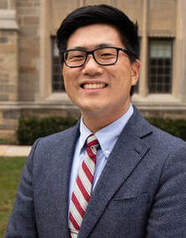
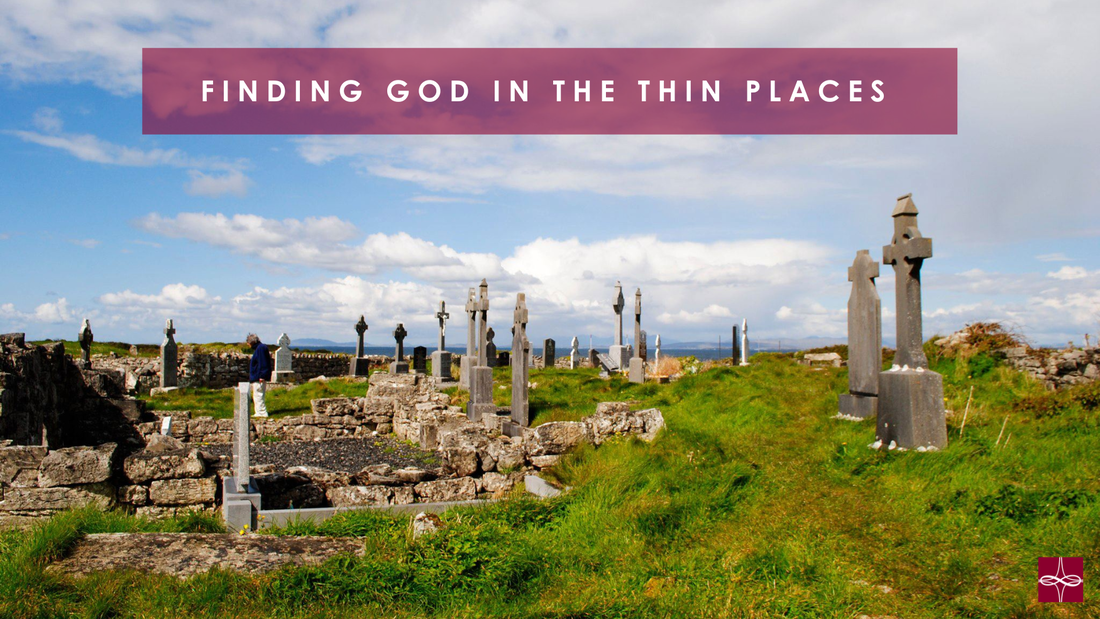





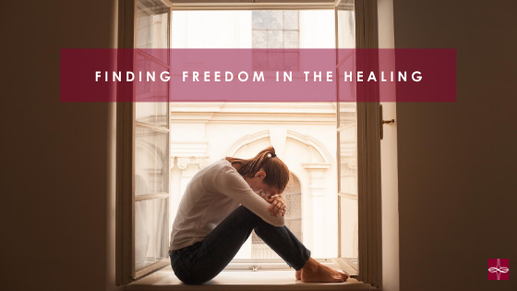



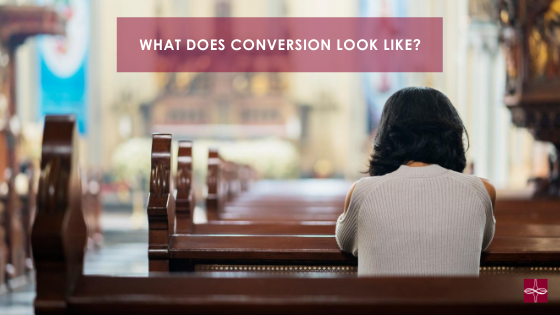



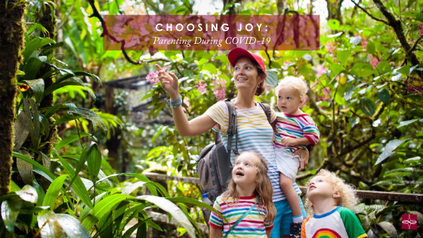

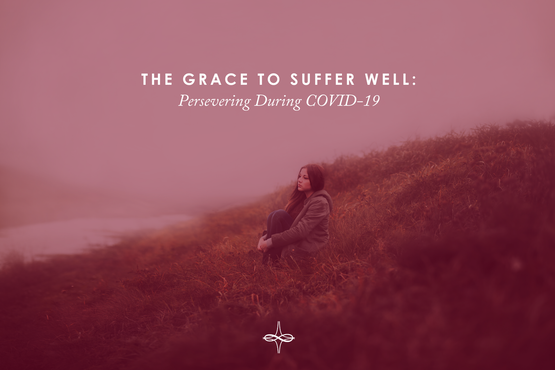

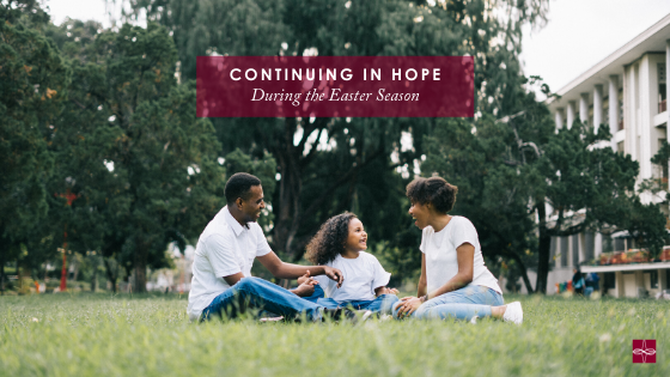

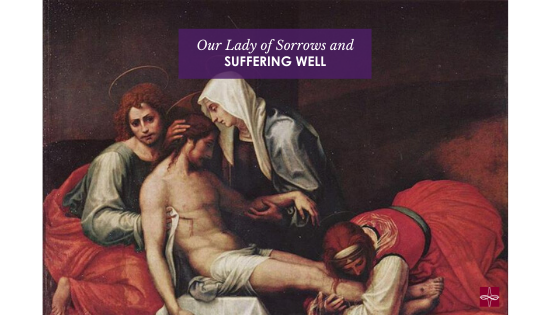



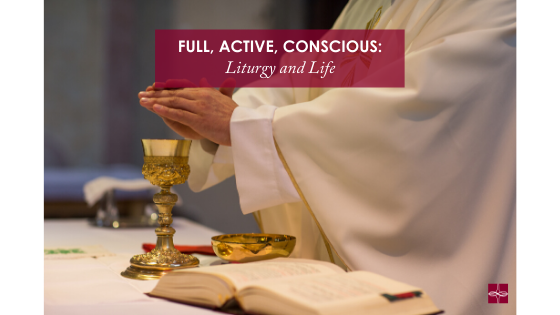

 RSS Feed
RSS Feed